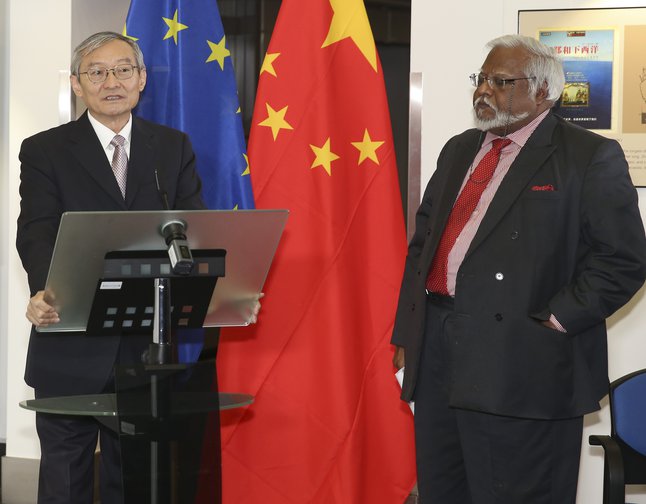On 26 November, Sinopsis – a Czech project by AcaMedia z.ú. in collaboration with the Department of Sinology at Charles University in Prague that aims to present a regular overview of developments in China and its impacts on the outside world from the perspectives of Czech, Chinese, and international observers – published a paper entitled “Repurposing democracy – The European Parliament China Friendship Cluster”. The document is an interesting insight into the links between some Members of the European Parliaments, European Parliament’s groups and platforms, and the Chinese Communist- Party.
The paper is available at https://sinopsis.cz/wp-content/uploads/2019/11/ep.pdf.

Abstract
“While the CCP’s influence operations in Europe are vast and remain largelyunscrutinised, some of the tactics, agencies and targets involved can be usefullysummarised through case studies of organisations at the intersection of multipleaspects of such influence activity. An informal “China friendship group” in theEuropean Parliament enjoys diverse links in China and Europe, warranting its useas such a case study. The group effectively functions as a proxy for CCP domesticand external propaganda: in China, the presentation of statements by its mem-bers helps engineer the perception of a global endorsement of the party-state’srule; abroad, it conveys support for CCP initiatives through credible voices. Asystematic overview of the group and its activities is presented here for the firsttime, along with its links to a wider network of CCP-aligned organisations thatare best analysed as constituting a cluster. The description of the cluster’s inter-actions with its partner agencies across the CCP political-influence apparatus isaccompanied by brief overviews of these agencies, highlighting their role in otheraspects of influence work. In particular, the political cooption efforts reflected inthe friendship group’s activities overlap with those that seek to engineer a dis-course landscape favourable to CCP policy. In such a China discourse environ-ment, European decision-makers are not only exposed to local proxies faithfullytransmitting CCP talking points, but also surrounded by an anodyne “neutral-ity” that legitimises such proxies and shields audiences from any critical scrutinyof CCP operations. A component of such discourse-engineering work relies onthe cultivation of Europe’s policy think tanks. Both the participation of one suchthink tank in interactions between group members and the CCP and the absenceof study of the group and its links by Europe’s leading policy research institu-tions illustrate aspects of the development of a CCP-friendly discourse landscapein Europe. Contrary to views of totalitarian power projection as primarily disrupt-ive, this paper adds to a growing body of research that establishes the focus ofCCP influence activity as repurposing democratic governance structures to serveas tools of extraterritorial influence, rather than destroy them.”